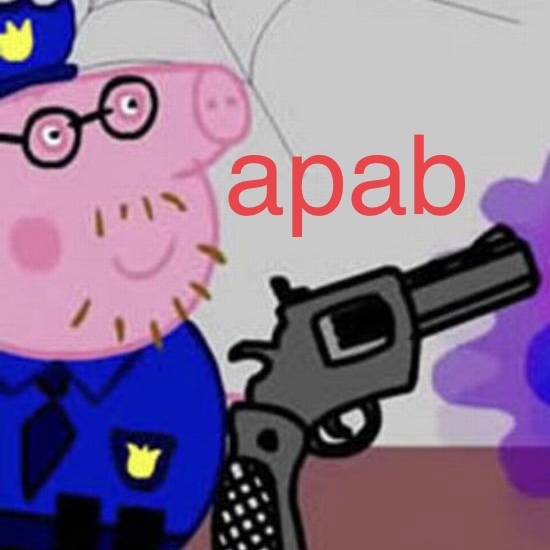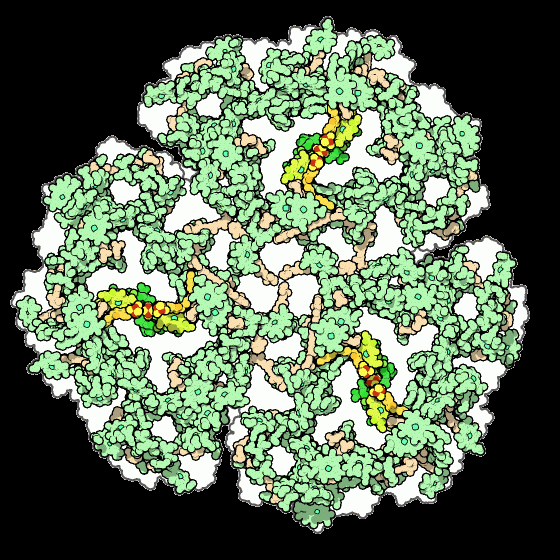This guy is apparently a widely cited education scholar not an extremist Marxist or whatever: “You Can’t Get There from Here” Johnstone 2010 [PDF]: https://sci-hub.se/10.1021/ed800026d
“capitalist competition makes us stronger and more innovative”
sorry radlibs but there’s a reason why 35% of students in your shitty designed STEM classes drop out, they aren’t stupid for getting bad grades. You’re the stupid one for being so ignorant that you’ve managed to fail to educate people for over 60 years. I take back everything I said about “western kids want to be Twitch streaming gamers lol they’re losers”, these families literally have not had access to a decent science education for three generations!
Are we still persisting in making our students sick of chemistry because “that is how chemistry is done here”? Who set the scene? How did it all come about?
The answer lies not with some malevolent group of people, but with a response made in the 1960s in the United States and throughout the Western world to combat the perceived threat of Russian scientific supremacy. ChemStudy and Chemical Bond Approach sprang up in the United States, Scottish Alternative Chemistry and Nuffield Chemistry appeared in the UK, and similar schemes were launched
the PMC class of finance imperialism educators are a malevolent group of people, Jeffrey Epstein was a NYC math teacher 
his suggestions for improved chem curriculum
Begin with the idea of the filter that is driven by what the learners already know and by what interests them. There is no point in beginning a course in chemistry with a treatment of atomic electronic configuration or bonding because the anchorages in long-term memory are not there. Without attachments in long-term memory, a student can only learn by rote methods. An approach to chemistry through acids, bases, and salts is unlikely to stir students with enthusiasm. Apart from common table salt, how many salts are in place in long-term memory to provide relevance and reality for the learner? On the face of it, inorganic compounds are “simple”, but are they? So many wrong concepts are introduced by teachers or constructed by the learners in this area of chemistry. A glance at a book of chemical data will show the absurdity of suggesting that sodium (or any other metal) is “anxious” to lose electrons and chlorine is “desperate” to accept them. It is too soon to introduce lattice energy or hydration energy to provide a rational basis for compound formation. The octet rule, with all its pitfalls for later study, tends to raise its ugly head here as a sort of rationalization.
The model suggests that we should begin where students are, with their interests and experience, and lead them into discovering new ideas among the familiar. An obvious starting point is in organic chemistry, with gasoline, camping gas, food, clothing, plastics, and drinks and so much more that is familiar. I know that it has been the tradition to keep organic for later, but are we taking a “monkey” point of view? Let us consider some of the advantages in starting here.
The long-term memory already contains anchorages for what we want to teach and the filter is primed and ready to go. The working memory is not in danger of overload. We can go a long way into organic chemistry with only a few elements: carbon, hydrogen, oxygen, nitrogen, and possibly sulfur and phosphorus. Most of these are familiar (at least their names are) to the learner. By considering the spatial arrangement of the four electrons around a carbon, students, using their fingers, can see that a tetrahedral arrangement is likely. Never mind sp3 hybridization. It is a cobbling together of atomic orbitals (isolated atoms in the gas state) to produce a tetrahedron. This is using unreality to arrive at reality. Pasteur knew about the tetrahedral arrangement long before atomic orbitals were conceived.
Using the simple tetrahedral idea, we can do a lot of sound organic chemistry linked to what the students already know, avoiding overload of working memory. Only when we reach organic acids do we have to reconsider bonding, but this can now be linked to the simpler ideas of covalent bonding already established. Another advantage of beginning with organic is that there is no pressure to use balanced equations. Practicing organic chemists do not bother, so why should we?
The model has led us to select a starting point that fits what is already in a student’s long-term memory. The working memory is not overloaded because only a few elements are involved in making familiar compounds. The representation triangle can be used along its sides to build ideas of the relationship between the macro and familiar, with the molecular. The use of the representational is reduced, and no calculations are necessary. All of this provides a logical basis for an applications-led approach instead of a conceptual approach followed by a passing mention of uses and applications.
The troublesome mole can be rethought in the light of the model. It has been my sad experience to have graduate students who confessed their inability to do mole calculations. The very word “mole” left them uncomfortable. How could highly intelligent young people have such an aversion? They met the mole too soon, wrapped up in incomprehensible (and even totally irrelevant) calculations that flooded the working memory into a state of paralysis. In an earlier publication (4) I set out an analysis of a trivial (from my point of view) mole calculation. I saw it as a four-step procedure, which did not tax my working memory, because I already had tricks for grouping the processes, but students saw it as a ten-step task, which blew their working memory.
Starting with orgo without fundamentally changing how orgo is taught too is a terrible idea
On my first day of orgo 1 in undergrad my professor said “Everyone raise your hand. Put your hand down if you’re not a chemistry major.” all but 10-15 people put their hands down “Now put your hand down if you don’t plan to go to grad school specifically for organic chemistry” all but 2 people put their hands down “If you are not one of those two people who still have their hands up, you will never use a single thing you use in this class.”
And he was 100% right and yet still made that class harder than it needed to be. This is deliberate of course, organic chemistry isn’t used as an academic class where skills and knowledge are taught, but a barrier to prevent too many people from going to med school.
My reading of the paper was different. The author isn’t suggesting teaching ochem but rather using organic molecules as the route to teach basic chemical concepts.
Yeah sorry kinda got distracted from the main point by just getting mad at my old orgo professor
God I hated that man, he’s the only non-politician I’ve ever genuinely wished death upon. Easily the worst teacher I’ve ever had, and it makes me feel a deep rage and disgust that he gets to have this highly valued position instead of someone more deserving. I would say he should be forced into sanitation work, but I don’t think the heroes who do that work should be forced to work with this man. But if there’s anyone who deserves to be paid like shit to clean up other people’s shit it’s him.
The main point of “we teach chemistry bad” I fully agree with
What the heck are you guys teaching in organic chem that doesn’t have wide application in molecular biology, biotech, etc? Quantum chemistry of exotic organo-metallic complexes? Here organic chem is considered much, much easier than physical chemistry (2nd year inorganic chem).
We do General Chemistry 1 and 2, then Organic 1 and 2, then Physical and Inorganic you only take if you’re like, a chemist or a material engineer.
General covers ionic compounds, basic bonding mechanisms, acid-base and electrochemistry, shit like that. It’s mostly a math class with some theory about molecular bonding. Organic is just rote memorization of very detailed reaction mechanisms. I work in a biology lab and I use the stuff I learned in Gen chem daily and have never used even a concept from orgo. Orgo isn’t treated like a class here, it’s just an obstacle for pre-med students.
That seems…dumb…especially since most organic reactions you can just vibe from first principles or learn by osmosis and the more obscure ones just look up in a book. Far more important to learn practical organic synthesis and characterisation techniques, along with an intuitive understanding or organic structures.
but a barrier to prevent too many people from going to med school.
Don’t we already have a doctor shortage?
Not if you want to have the most expensive health care in the world!
The supply of medical professionals in America is heavily limited to maintain the high income and social status of the profession.
Death to America
One of my bros went for a chem masters, and he would frequently end up staying up spending half the night studying for orgo. It was to the point that the stress would get so out of hand it would overstimulate him and he would need to run to the bathroom to vomit, and then he would go back to contunue studying
was it
 who had a guest describing how the AMA artificially keeps the number of doctors in America low (by high cost/competitive medical schools) in order to keep doctor wages extremely high? The quote that stuck with me, paraphrased, was “we could have as many doctors as we do teachers, if we wanted to”
who had a guest describing how the AMA artificially keeps the number of doctors in America low (by high cost/competitive medical schools) in order to keep doctor wages extremely high? The quote that stuck with me, paraphrased, was “we could have as many doctors as we do teachers, if we wanted to”tell this to an American and they’d say how nobody would ever do such lengthy and rigorous schooling + training to become a doctor if wages weren’t artificially kept high
looks at Cuba
Honestly at this point they might be correct, so many education/career choices here are completely dependent on high wages because of how unliveable most of them are
You can also “artificially” pay them more if you want, without playing supply/demand games
Could you do that in America without an overthrow? Since doctors are employed and paid by private companies and not the state lol
No yeah, of course nothing good will happen in America till something like that happens
The number that sticks out to me is there are only about 1 million doctors in total for the whole of the US.
I’m not sure what an acceptable ratio of doctors to patients should be but 1:360 is definitely too low.
This is out of date by over 30 years. The AMA has been begging congress to expand residency funding for my entire career. The roadblock is not coming from physicians, it is hospitals and insurance companies that have decided inefficient care through nurse practitioners is more profitable for them.
In most anglophone countries both doctors and lawyers are still self-regulating which means that professional associations made up of doctors and lawyers determine how many doctors and lawyers can be licensed (though often only indirectly by setting standards). In many ways, these professional bodies are continuing their heritage as modern day descendants of medieval guilds by ensuring that prices are kept high.
Lol, “Chemistry classes scare kids away! Let start with organic chemistry instead!”
I like o-chem, as a chemistry nerd, and I do not think that’s the place to start, by any stretch.
‘oooh, salts are boring’, okay, combine some sodium and chlorine in front of some children then, coward. I bet they’ll love it.
I think science grades would probably skyrocket if every week involved at least one uncontrolled exothermic reaction
i remember watching a documentary from the early 00’s that showed gazan children making sugar rockets to launch into south israel (which were mostly harmless) and thinking to myself that those kids knew more practical chemistry than most american adults
In one of the first days of my high school chemistry class my teacher mixed nitroglycerin with something to make it spontaneously combust and it fucking ruled and had us all way more interested
I don’t rmember anything about chemistry except thermite day. : )
“I thought I was here to make baking soda volcanoes”
“No, now get back to work on your NMR peaks”
Gen chem at uni in the US tends to be used as a formulaic weed-out course. They barely even care who teaches it. It’s supposed to be difficult and is more about reading the book than learning anything in class or lab, though you are forced to attend both in order to do well. The courses are usually curved to ensure that it’s virtually impossible for everyone to pass, or even a majority of people to get more than a 3.0 (on a 4-point scale).
I think gen chem is actually intentionally made difficult to understand from the course itself. I did well in it because I’m good at learning from books but it’s a bullshit class.
Our school was super proud of our gen Chem professor tonthe point he’d do “science Magic shows” for open houses and shit.
He also sold a spiral bound loose leaf “textbook” that cost $300, was written by him, and was absolutely required for all 500 freshman students that took his class every semester.
He had the big house on top of the hill in town.
Amazing.
I’m very familiar with those kinds of textbooks lol. Usually bound with plastic rings, colored card stock as the cover.
To my knowledge the chem profs I’ve seen with them didn’t earn money off of them, just prestige (they were focused on doing education research), but I’m not surprised that there are losers out there fleecing their students.
though you are forced to attend both in order to do well
I’m taking it right now and skipped like 80% of lectures lol I think it depends on the professor like all my other classes had. Resources are all online
Also the first exam had a 52% average and like a third of the class dropped the course after it 💀
Nice on not needing to attend! Every gen chem course I’ve seen in the last few years (I sometimes do work adjacent to academia) has live quizzes that count for something like 20% of the grade, so I was thinking of things like that which are really just attendance proxies. Many universities prohibit attendance policies and then asshole profs effectively reinstate them using things like this.
52% average sounds about right lol.
A whole lot of it is just a repetition of an advanced course in high school (not even AP, though).
It wasn’t till part of the way through the second semester that I started really learning new stuff.
At my college it’s orgo that’s the big weed out class, it seems like they deliberately keep one of the worst professors in history on staff exclusively as a lecturer just to make that class awful.
From Jeff Schmidt - Disciplined Minds: A Critical Look At Salaried Professionals And The Soul Battering System That Shapes Their Lives
Chapter 12: NEUTRAL VOICES
[Description of a 3-card-monte scam]
For the operator of the game, getting the mark to go peacefully is a necessity, not an option, and so cooling out is not something that happens “after” the game. Cooling out is an integral part of the game.
The U.S. socioeconomic system, like the hustler, makes false promises, the principal one being that social mobility is available to all who work hard. By its very nature, a hierarchical system cannot possibly keep such a promise. The number of positions at successively higher levels decreases very quickly and is always less than the number of hardworking people who want the positions. This structure sets many ambitious workers on a collision course with the reality of limited opportunity. When they are finally hit with the tragic disappointment, they may become angry or resentful, and so the hierarchical system must engage in widespread cooling out. It does this not only to protect its agents who stand at the gate and do the dirty work of exclusion, but also to make sure that those who have been disappointed do not become opponents of the hierarchical system itself and enemies of its power elite. It is vital to the system that the losers serve the hierarchy respectfully, and not sabotage it, when they find themselves with jobs that have lower social status than the society of “unlimited opportunity” had led them to expect. Cooling out is therefore an integral part of the socioeconomic system.
As the avenues for getting ahead in this country have narrowed, the route of formal education has become dominant, so that today the pursuit of opportunity in the United States is to a large extent institutionalized in the colleges. As a result, the colleges have become one of the pyramidal system’s main tools for cooling out people’s “unrealistic” career ambitions. They do it on a massive scale, yet by necessity conceal the fact that that is what they are doing.
[Pre-College description (SAT, etc)]
[Context:] Each year, only about 5% of those enrolled in two-year colleges transfer to bachelors granting institutions, an astoundingly small fraction.
Clark analyzed the process by which junior colleges change transfer students into terminal students. He considers as an example a student who wants to be an engineer but who is destined not to be one. What might be the sequence of experiences that cools him out? At many junior colleges these experiences start even before classes do, in the form of testing and counseling. Thus, after an enrollment examination in English and mathematics, our would-be engineer may find himself in remedial classes, which delay his eventual transfer to a four-year college and, more importantly, shake his self-image as a future engineer. At a required advising session, a counselor looks over his “counseling folder,” which contains transcripts from other schools, test scores, recommendations from teachers and so on. Although his file is thin, the counselor observes that high school grades and test scores such as these usually suggest a less ambitious program —’’but of course you are free to go ahead and try the pre-engineering program if you want—just remember that we have a lot of really good vocational programs here, too.”
The student will face this folder again and again as the months go by and as grades and “need for improvement” notices from instructors accumulate. The file of impersonal, objective-looking data shadows him and, when it grows sufficiently strong, will stalk him. The counselors, skilled in handling the “overambitious” student, use the growing file to justify becoming more persistent with their advice. Advice given at previous counseling sessions is in the student’s folder and is now cited impersonally as part of the accumulating “evidence.” The counselors edge the student toward a vocational program, but they never countermand his choices, for the whole point of the protracted exercise is to avoid a personal, hard “No,” and to have the student make the “correct” choice on his own.
Finally, the student is put on academic probation for receiving below average grades and must now submit to more than the usual amount of counseling. Students are allowed to stay on probation for a number of semesters or indefinitelv, depending on the school, so probation does not force many students out of junior college. Rather, it is designed to get the student to think about himself and admit to his thinking the possibility of reclassifying himself as a terminal student. Reclassification would allow him to receive the college’s two-year degree, Associate in Arts, by putting him in classes in which he would get grades high enough to bring his average up to the required level.
He relents, at last, and reclassifies himself, marking a big change in his life. The college expedites changes of this sort by making them appear as small as possible: Our student will be an “engineering aide” instead of an “engineer.” There is a world of difference, of course, but on the surface things appear pretty much the same: He continues as a student (at least for the time being) and tells family and friends that he has decided to “start out” as an engineering aide.
[Pivot to University education.]
Many students who do get bachelor’s degrees want to work toward a professional credential, such as a law degree, medical degree or PhD. As we have seen, the criteria that determine who is permitted to do this include attitude, and in particular favor individuals who have the kind of uncritical attitude, or narrow focus, that makes them easy to direct. But it is not enough for the qualification system to give the best positions to those who will do the best job from the point of view of employers. It must also cool out the high educational and career expectations of those who are excluded, including those who would do the best job from other points of view, such as that of clients and the public. Professional qualifying examinations help to do both: Not only do they help identify those who would serve employers best, but they also help cool out the “failures.”
The [standardized pre-professional qualifying] test’s nonpartisan look transforms it from a tool of the institution into an independent third party, allowing the institution to maintain a purely positive image: The institution is set up to produce successes: it is the test that forces denial. (“Modern personnel record-keeping, in general, has the function of documenting [for] denial,” notes Clark. 1 ") When faculty members judge a student negatively and crush the student’s hopes of becoming a professional in the field, they use the test to distance themselves emotionally from what they are doing and to avoid feeling personally responsible for their decision. Yes, the faculty members write the test, administer it, score it and report the results, but in doing each of these things, they see themselves as clerical workers, not as judges. It is the nonpartisan third party that judges the student. Faculty members are generally sympathetic, but detached, as the neutral third party snuffs out the student’s aspirations in a clean, mechanical, businesslike way.
Qualification systems almost always allow for repeated attempts at success — and repeated occasion for failure. The student has the right to retake the qualifying examination even when the faculty doesn’t encourage the student to do so. This right to try again is always presented in terms of the opportunity it provides, not in terms of its main purpose, which is to let down the hopes of the unwanted slowly, rather than in one abrupt, alienating, and potentially explosive step. When students are failed for the first time, they begin to admit thoughts of revising their goals. By the time the exam comes around again, they are more prepared to accept its judgment of their ability to learn the tricks of the trade. The faculty is more persuasive this time, now that it is backed up by another piece of “objective evidence.” The facts get increasingly hard for the student to explain away.
“Maybe the faculty is right and I’m just making excuses.”
Sorry to make such a long post lol. I tried to summarize where I can.
This is really good thank you for this
i see disciplined minds, i fist pump. excellent book.
I went to college twice, once for a liberal arts degree, then I went back a few laters to study chemistry. I did it specifically to get work and I don’t have any interest in the subject. It was very tedious and no one seemed to want to be there, including the professors.
Is this a failing on my part or the way education was presented to me? I think about that a lot and I’m not sure.
o one seemed to want to be there, including the professors.
this is not at all a failing on your part. A proffessor who’d rather be elsewhere is basically guaranteed to do a poor job.
It’s so cathartic to see someone actually give a shit about how students process information.
all this stuff about working memory and anchoring to the familiar is great
YES YES YES YES YES this really supports the idea I’ve had that the only people who filter through high school chemistry (enjoy it and learn something) are those who already have exposure. The material is too much for someone who doesn’t have exposure. The only people that end up suceding are the kids that watched NOVA and various other science programs as a kid and don’t have to learn everything right then.
High school chemistry? My high school chemistry teacher was very enthusiastic about teaching and had us do a lot of experiments. It was an extremely engaging class. That’s going to vary wildly across schools though.
My high school chemistry teacher had a breakdown when no students could answer a question he’d asked, so he started yelling at the class, screamed “fuck it” and walked out of the school and went home. Made for an interesting rest of the class, not to mention the obviously insincere apology email he had to send everyone. I swear I learned so much less than I could’ve there.
Was your teacher
 ?
?Ngl he probably liked to think he was
For some reason my partner insists that I’d be a good university professor. I just know that this would be me by the end of my first week.
Yup, me too. I think I’m a good teacher, but I don’t think I could actually handle doing it as a job. Trying to teach things to people who don’t really want to learn them is one of the most depressing things I’ve ever experienced
Same, was going to say I can’t imagine somebodyngetting to college and being exposed to all of chemistry at once.
I was the type of person who got straight As cramming
all my SAT 2 subject tests were over 700 except my chem test which was 680
another of his articles; Why is science difficult to learn? Things are seldom what they seem : https://onlinelibrary.wiley.com/doi/abs/10.1111/j.1365-2729.1991.tb00230.x
Here’s a scihub link: https://sci-hub.st/https://doi.org/10.1111/j.1365-2729.1991.tb00230.x
The discussion of how American attitudes towards the material affect student outcomes is fascinating. There’s also a stark class element to this where schools, just like most places which employ large numbers of people, have implicit class-based filters in their hiring processes. With schools in particular, there’s an additional force of some teachers desiring to teach in schools they graduated from. So the class character of instruction is reified over time.
Lower income school districts have a tendency to focus on rote memorization and obedience. Higher income districts have more focus on interpersonal and free form problem solving. Things where individual initiative is key. Then there are lots of middle income schools where the expectation is essentially that people get a Bachelor’s and work as a low-to-mid level employee in more “specialized” (class-speak for “respectable”) fields.
This is kinda similar in explanation to my understanding of the polytechnic education. Where instead of learning things in a vacuum you learn things as they apply to things you may do. So for instance to learn about volume, perhaps you build a box out of wood. It’s tangible and it teaches you multiple skills at the same time and relates them to each other. Volume is easy to understand when you cut wood and use nails to create a box from it and then fill that box. It is harder to understand when you are shown an equation without context. Plus now you have also learned how to cut wood and build a box.
I think this sort of more hands on relational approach to education makes more sense. Relate new concepts to concepts you already understand and then build on them. It is only when you get very deep into math and science that things become truly theoretical and by then if you have the base concepts built up they should be easier to conceptualize.
Can confirm that my intro chemistry course was far more difficult than geology, physics, biology, etc. It felt intentionally difficult.
100% agree. My gen chem prof was a fascist
My ochem prof was a trad cath, its all by design. If you’re too left you get booted from STEM due to cold war bs, good example was one physics PhD I knew in undergrad ended up doing pretty shit jobs since he was unhireable due to politics. No such thing as too right though.
Everyone here is focused on the specific recommendation of organic as the starting point, but I think the broader point is more important: gen chem is nothing at all like any classes later on in the subject, and that is a problem. Personally I think a simplified form of basic organic chem as a starting point is a pretty good idea, but whether or not you agree on that specific point, I hope we can generally agree that gen chem is a horrible way to introduce students to the subject, and is pushing away a ton of people who might have an aptitude for it.
NYC math teacher
physics teacher i think. another banger bmf
Turns out it was both: https://en.wikipedia.org/wiki/Jeffrey_Epstein#Career
























